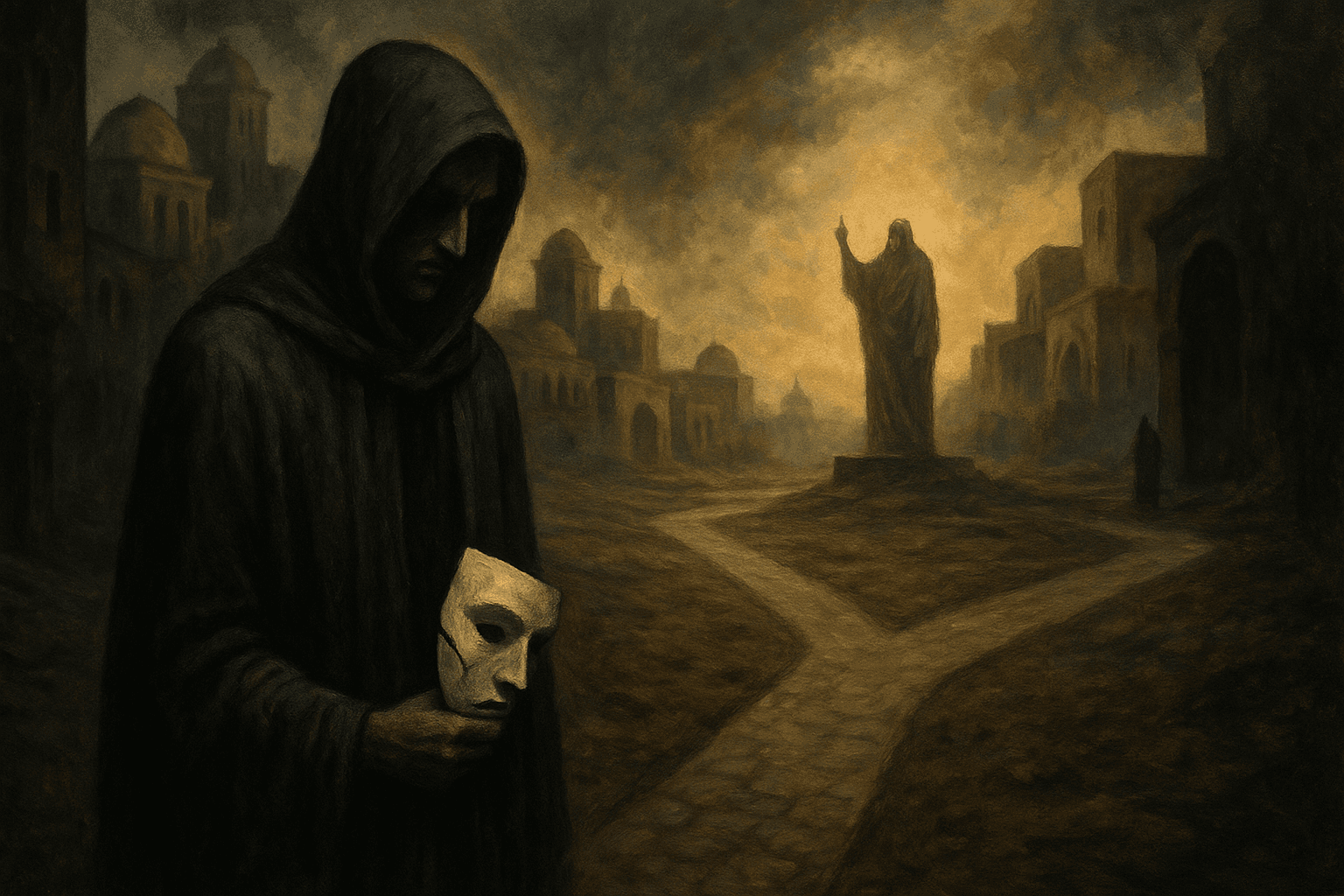Unraveling Identity in Oedipus King of Thebes

When we think of identity, we often picture ourselves as a collection of experiences, beliefs, and relationships. But what happens when the very foundation of who we are is built on secrets and lies? In Sophocles' Oedipus King of Thebes, the theme of identity is not just a backdrop; it's the very heart of the tragedy that unfolds.
From the very beginning, we are introduced to Oedipus as a confident and capable ruler, unaware of the storm brewing beneath the surface. As the citizens of Thebes gather before him, their hopes rest heavily on his shoulders. Oedipus stands as both a leader and a symbol of Theban identity, embodying the aspirations and dreams of his people. This duality sets the stage for a profound exploration of identity, as Oedipus is not just a king but a man whose fate is intricately linked to the city's own.
As the story progresses, we witness Oedipus's relentless pursuit of truth, which is both admirable and tragic. His determination to uncover the truth about King Laïus's murder becomes a catalyst for the unraveling of his own identity. When Tiresias, the blind prophet, reveals that Oedipus himself is the murderer, we see the first cracks in his self-perception. This moment ignites a powerful internal struggle, as Oedipus grapples with the horrifying reality that his destiny was foretold long before he took his first breath.
The conversation between Oedipus and Jocasta further complicates his quest for identity. Through Jocasta's recounting of the oracle's ominous prediction, we see how prophecies can shape identities, often in ways that are beyond our control. Oedipus's journey leads him to the crossroads where his father met his fate—a moment that encapsulates the tragic intersection of fate and free will. The arrival of the messenger from Corinth, revealing Oedipus's true lineage, shatters his understanding of self and destiny, forcing him to confront the very essence of who he is.
By the time we reach the climax of the narrative, Oedipus stands before us as a man irrevocably changed. The physical and emotional blindness he experiences after learning the truth about his identity serves as a powerful metaphor for the blindness we all experience in our lives. How often do we overlook the truths that lie within ourselves? Oedipus’s tragic fate invites us to reflect on the fragility of identity and the consequences that arise when we fail to confront the deeper truths of our existence.
As Oedipus pleads to be banished from Thebes, we are left with the haunting realization that identity is not just shaped by our actions but also by the relentless forces of fate and prophecy. His journey serves as a cautionary tale—a reminder that our identities are often tied to the choices we make and the truths we dare to confront.
In the end, Oedipus's story is a powerful exploration of identity that resonates across time. It challenges us to consider the layers of our own identities and the hidden truths that may lie beneath. Just like Oedipus, we all have a journey to embark on, one that may lead us to confront our own shadows and redefine who we are. So, as you reflect on your own identity, ask yourself: what truths are you willing to uncover?
In the tragedy of Oedipus, we find not just a story of loss and despair but a profound journey through the complexities of identity that continues to echo in our own lives.
Books: Oedipus King of Thebes / Translated into English Rhyming Verse with Explanatory Notes
Authors: Sophocles
Publishers: Public Domain